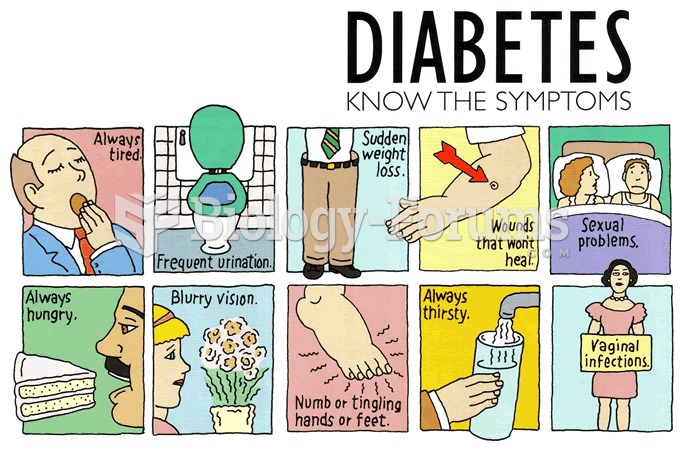|
|
|
Urine turns bright yellow if larger than normal amounts of certain substances are consumed; one of these substances is asparagus.
Common abbreviations that cause medication errors include U (unit), mg (milligram), QD (every day), SC (subcutaneous), TIW (three times per week), D/C (discharge or discontinue), HS (at bedtime or "hours of sleep"), cc (cubic centimeters), and AU (each ear).
Symptoms of kidney problems include a loss of appetite, back pain (which may be sudden and intense), chills, abdominal pain, fluid retention, nausea, the urge to urinate, vomiting, and fever.
In 1864, the first barbiturate (barbituric acid) was synthesized.
Lower drug doses for elderly patients should be used first, with titrations of the dose as tolerated to prevent unwanted drug-related pharmacodynamic effects.
 Deforestation and increased road-building in the Amazon Rainforest are a significant concern because
Deforestation and increased road-building in the Amazon Rainforest are a significant concern because
 But tortoises on lusher islands where grass is plentiful and the need to reach into trees not so fre
But tortoises on lusher islands where grass is plentiful and the need to reach into trees not so fre





